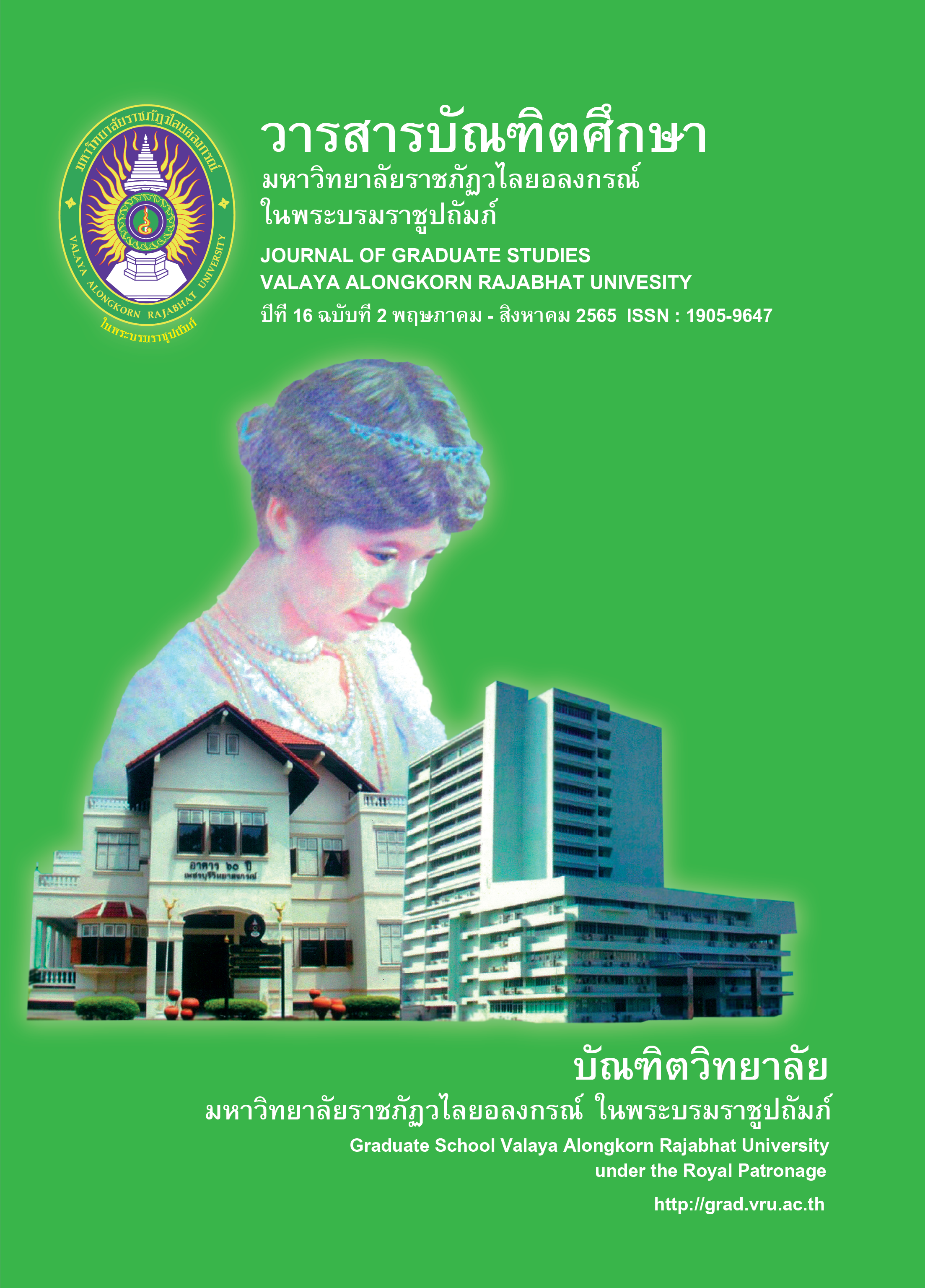PUBLIC AND PRIVATE PARTNERSHIP IN KHON KAEN URBAN DEVELOPMENT AS A SMART CITY: A CASE STUDY OF LIGHT RAIL TRANSIT (LRT) CONSTRUCTION PROJECT
Main Article Content
Abstract
There four objectives in this study: 1) to examine the emergence and the ways in which the state and private sectors collaborated on the urban development project of Khon Kaen, 2) to analyze the roles and collaborative practices of the state and private sectors in the urban development of Khon Kaen, 3) to analyze the strength, limitations, problems and obstacles of the urban development in the form of state-private sector collaboration, and 4) to propose the policy recommendation to the government. This research was qualitative and its method included interviews related people: public sector (provincial part, private sector and five Local governments), observation and related documents were collected as tools for data collection.
The research found that 1) the collaborative project was originated from the awareness of the urban problems which resulted from the fast-paced development of the City of Khon Kaen. The local administration, private sector, and the civil society had the ideas of to transform Khon Kaen into a smart city. The development of public transport was the first step of the project. 2) Due to the budget of the local administration was still limited for the construction. As a result, Khon Kean City Development (KKTT) Co., LTD as a private sector took part in the project. At the initial stage, it provided the financial support to the construction. The project of Khon Kaen Transit System (KKTS), therefore, was originated from the bottom-up sphere as it was the collaboration among five local governments in Khon Kaen as a private company. 3) Obstacles arose at times due to the insufficient decentralization of the Thai state. 4) Urban Development project, particularly in provincial areas, should have collaboration form the central government and provincial part.
Article Details

This work is licensed under a Creative Commons Attribution-NonCommercial-NoDerivatives 4.0 International License.
บทความทุกเรื่องได้รับการตรวจความถูกต้องทางวิชาการโดยผู้ทรงคุณวุฒิ ทรรศนะและข้อคิดเห็นในบทความ Journal of Global of Perspectives in Humanities and Social Sciences (J-GPHSS) มิใช่เป็นทรรศนะและความคิดของผู้จัดทำจึงมิใช่ความรับผิดชอบของบัณฑิตวิทยาลัย มหาวิทยาลัยราชภัฏวไลยอลงกรณ์ ในพระบรมราชูปถัมภ์ กองบรรณาธิการไม่สงวนสิทธิ์การคัดลอก แต่ให้อ้างอิงแหล่งที่มา
References
Anutara-angkoon, P. (2019, February 13). The Mayor of Tha Pra Subdistrict Municipality. Interview by P. Tupmongkol [Tape recording].
Cartlidge, D. (2006). Public Private Partnerships in Construction. London, Taylor&Francis.
Hausner, V. A. (1993). The future of Urban Development. RSA Journal. 141(5441), pp.523-533.
Ke, Y., Wang, S., Chan, A. P., & Lam, P. T. (2010). Preferred risk allocation in Chaina’s Public-Private Partnership (PPP) Projects. International Journal of Project Management. Vol.28, pp.482-492.
Khon Kaen City Development Co., LTD. (2018). Company Profile. Retrieved from http://www.khonkaenthinktank.com/profile.php
Koppenjan, J. F. M. & Enserink, B. (2009). Public-Private Partnerships in Uban Infrastructures: Reconciling Private Sector Participation and Sustainability. Public Administration Review. 69(2), pp.284-296.
Kraipeerapan, C. (2018, November 20). The Deputy Mayor of Muang Kao Subdistrict Municipality. Interview by P. Tupmongkol [Tape recording].
Laovirojjanakul, K. (2017). City of Future: mư̄a chāo Khō̜n Kǣn luk khưn patiwat rabop khonsong sāthārana læ phatthanā mư̄ang [City of Future: When Khon Kaen People Desire to Reform Mass Transportation System and Urban Development]. Retrieved from https://readthecloud.co/scoop-6/
Li, B., Akintoye, A., Edwards P. J., & Hardcastle, C. (2005). Critical Success Factors for PPP/PFI Projects in the UK Construction Industry. Construction Management and Economics. June 2005(23), pp.459-471.
National Statistical Office. (2019). Number of Population from Registration by Sex, Area, Density, House, Region and Province: 2010-2019. Retrieved from http://statbbi.nso.go.th/staticreport/page/sector/en/01.aspx
Niyomsin, P. (compose). (2019). rabīang sētthakit khō̜ng ʻanu phūmiphāk lum mǣnam khōng [Greater Mekong Subregion Economic Corridors], King Prajadhipok's Institute, Retrieved from http://wiki.kpi.ac.th/index.php?title=ระเบียงเศรษฐกิจอนุภูมิภาคลุ่มแม่น้ำโขง
Office of the National Economic and Social Development Council. (2020). Gross Regional and Provincial Product: Chain Volume Measures 2018 Edition. Retrieved from https://www.nesdc.go.th/ewt_dl_link.php?nid=5628
Patton, M. Q. (2015). Qualitative Research & Evaluation Methods. 4thed. London, SAGE Publications, Inc.
Phetpradub, C. (2018, September 16). Representative of Local Media. Interview by P. Tupmongkol [Tape recording].
Pongsawat, P. (2020, March 10). Lecture in Political Science, Chulalongkorn University. Interview by P. Tupmongkol [Tape recording].
Praditpong, C. (2019, May 31). Chairman of Board of Khon Kaen Transit System Co., LTD: KKTS. Interview by P. Tupmongkol [Tape recording].
Sorensen, A. (2011). Uneven Processes of Institutional Change: Path Dependence, Scale and the Contested Regulation of Urban Development in Japan. International Journal of Urban and Regional Research. 35(4), pp.712-734.
Tang, L., Shen, Q. & Cheng, E. W. (2010). A review of studies on Public-Private Partnership projects in the construction industry. International Journal of Project Management. 28, 683-694.
Taweesaengsakulthai, S. (2018, November 24) KKTT Co-Founder and Lecture of the College of Local Administration (COLA), Khon Kaen University. Interview by P. Tupmongkol [Tape recording].
Teekayupan, T. (2014). mư̄ang Khō̜n Kǣn kap nawattakam kānphatthanā [Khon Kaen City and Development Innovation]. Bangkok: Center for Megacity and City Study Rangsit University.
The Krungthep Thanakom Co., LTD. (2019). prawat læ khwāmpenmā khō̜ng bō̜risat [History of the Company], Retrieved from http://www.thanakom.co.th/thanakom/about_us.html
Wanapitakkun, T. (2019, September 26) Director of Engineer Sector of Khonkaen Municipality. Interview by P. Tupmongkol [Tape recording].


